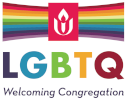Sermon, Dr. David Robins, March 2nd, 2008
Reading: from The Left Hand of God, by Michael Lerner.
“We can have enough credible strength to prevent countries from taking aggressive actions against their neighbors and still channel massive resources into the path of generosity. Our aim, however should be to trust in our Strategy of Generosity and move toward a nonviolent peace force. Imagine today if we could mobilize even five million people in such a nonviolent army to separate and protect Israelis and Palestinians or to stop the bloodshed in Darfur. Are there millions of people around the world who would join such a force? Absolutely. Don’t ever let the sneering cynicism of the pundits obscure the powerful generosity of spirit of the American people and of many other people on this planet once their attention gets focused on a global problem. In fact, a small nonprofit calling itself the Nonviolent Peace Force, without any of the resources needed to do this on a grand scale, has already recruited thousands of people to do precisely this kind of peaceful intervention in Sri Lanka.”
Michael Lerner’s vision of an international non-violent peace force could change our world. Just as Martin Luther King sent out a call for people to come march non-violently in Alabama, so too could a call come for millions of people to fly to Darfur, or to Palestine for non-violent change.
For example, a young adult UU, who had grown up in a UU church, decided to devote herself to being trained as a non-violent escort for the native people of Chiapas Mexico. The native people and the army troops were in continual battle with each other. Her parents were scared to death that she would die or be badly injured, or worse. Her parents could not talk her out of going to Chiapas, and so she went as part of a non-violent peace force.
In 1968, Martin Luther King Jr. published the essay, The world House. In this essay he tells a story:
“Some years ago a famous novelist died. Among his papers was found a list of suggested plots for future stories, the most prominently underscored being this one; “The matriarch of a wisely separated family dies. At the reading of the will, the estranged family members are surprised to learn that their inheritance is dependent upon living together in the matriarch’s house.”
“This is the great problem of humankind. We have inherited a large house from Mother nature, a great world house in which we have to live together—black and white, red and tan, easterner and westerner, gentile and Jew, Catholic and Protestant, Muslim and Hindu—a family unduly separated in ideas, ethnicity, culture and interest who, because we can never again live apart, must learn somehow to live with each other in peace.”
King said that in looking for an approach to living together, he found himself rejecting aspects of both liberalism and neo-orthodoxy. He did not care for liberalism’s idealism, for it did not adequately take into account the destructiveness, hate, and violence in human nature. Human beings, by our nature, he observed, rationalize our actions. Our rationalizations too often justify defensiveness, fear, bigotry.
Neo-orthodoxy on the other hand fails us by being too pessimistic about human nature, and too dependent upon religious absolutism in its solution to the problem of human nature. If it is pre-determined in who is saved and who is not, if we a so inherently flawed that we can never get it right on earth unless we all believe the same way, then how can people of different faiths and races ever find a way to live peacefully in the same house? Liberalism is too optimistic, neo-orthodoxy too pessimistic.
King considered humanism, and was humanist enough to decide that human beings make the difference for justice and love and peace in the world. Human beings make the determination in our choice points. He was theist enough to say that God is a force who can guide and sustains us at those choice points.
King’s entire opus of writings emphasizes this theme and his hopes around this theme. Slavery and segregation, he said, were a terrible burden for our fellow Americans to carry, and America’s shame. God, he offered, provides the inner peace and motivation in meeting injustice with love.
He believed that nonviolence is a way of living in harmony with God, and a tool for achieving full civil rights. King was influenced by Gandhi’s practice of non-violence, or satyagraha. He was also influenced by the Unitarian Universalist philosopher, Henry Nelson Wieman. Wieman’s notion of God was a bit odd. He decided that God came to exist in the world when people interacted non-violently, equally, and with appreciative understanding for each other. We have choice points in our interaction with one another, when we can either be respectful or disrespectful, equal or unequal, manipulative or curious, appreciative and understanding or the opposites. He called it limited temporal theism. It means, God is not omniscient, omnipresent, or eternal. God is limited to the boundaries of our bodies and minds, but can be a powerful force for good in this limited way.
How do we live in the same house when our differences are so threatening and our truths so upsetting to each other?
Why are some religious people violent? This was the question that Dirk Ficca, director of the Council for a Parliament of World Religions, addressed to a dozen members of various faiths, Christian, Jewish, Muslim, Sikh, in Chicago recently. Robert McClory, a professor at Northwestern, who was in the gathering stated the question as:
“What is this peculiar negative impulse of religious violence, and how can positive religious action counteract it?
“The Sikh guru stated that the term was a logical impossibility. If it’s religion it can’t be violent. Violence springs from the urge to control land and wealth and people and not from spirituality.”
A Muslim cleric countered that ‘Religious communities must take responsibility for violence. They are not exempt. As long as religions continue to legitimize just wars and jihads, they cannot deny their role in fomenting violence. ’
“Another Muslim commented that the literal reading of religious texts can lead to violence, such as the Koran passage that says any Muslim who converts to another faith should be killed.
A Jewish participant expressed her appall at the connection between God and violence in her scriptures, citing the book of Joshua, in which God orders the massacre of every man, woman and child in the city of Jericho.
“McClory offered the theory that there is something potentially volatile in the claims of many religions to have an exclusive hold on universal religious truth, exclusive in the sense of one god-given official truth, and universal in a sense that everyone must believe it. Those who reject the truth are wrong, and it is a short jump from being wrong to being evil. He noted that the other members of the group were not ready to accept this theory and insight.” It was too uncomfortable to think that the truth claims of most religions hold within their truths the seeds of violence.
I am willing to consider the possibility that our own UU principles, our own UU truth claims carry within them the seeds of a kind of emotional violence and intellectual violence. And these seeds make it difficult for us to live together in the same house.
Our Unitarian Universalist children and teens and young adults grow up believing that we stand for peace and fairness, truth and a radical welcoming. How surprised and disappointed they are, like the children, teens and young adults in other faiths, to discover that we are not perfect peace, fairness, truth and radical welcoming.
To hold oneself higher than the community is destructive, and to hold the community higher than oneself is muting, but to hold both, together, interconnected, as a web in the process of being spun, honors both the individual conscience and the deep need for religious community.
To claim religious exclusiveness, or that one’s truth must be adopted by everyone, is a moral error, which can lead to intolerance, bigotry and sometimes to violence.
Author Shelby Steele, in his book, The Content of Our Character,
“In our age, principles like fairness and equality are ill-defined and all but drowned in relativity. But this is the fault of people, not principles. We keep them muddied because they are the greatest threat to our presumed innocence and our selective ignorance. Moral principles, even when somewhat ambiguous, have the power to assign responsibility and therefore to provide us with knowledge.” (p20)
Unitarian Universalists have an important message for a divided world. Our message does not come from our perfection, but from our imperfections, our experiencing the racial and theological divisions within our own house.
“This is the great problem of humankind said King. We have inherited a large house in which we have to live together—black and white, easterner and westerner, gentile and Jew, Catholic and Protestant, Muslim and Hindu.” Part of the solution is to banish a notion of a God or an unquestioned truth that leads to power, privilege, status, entitlement, and violence. Perhaps this is what King might have meant when he said, “I am no doctrinaire pacifist, but I have tried to embrace a realistic pacifist position… in the circumstances. I do not claim to be free from ..moral dilemmas….”
In order to live in the same house, whatever the size of the house, requires King’s practice of a realistic pacifism… a non-violent peace force made up of millions of people like the UU woman who went to Chiapas and returned safely....a commitment to the creative interaction described by Wieman… the moral effort referred to by Shelby Steele… and McClory’s observation that our dearest truths may carry within them the seeds of violence. Is this too much to ask of us? I think not.
Peace be upon this house.


